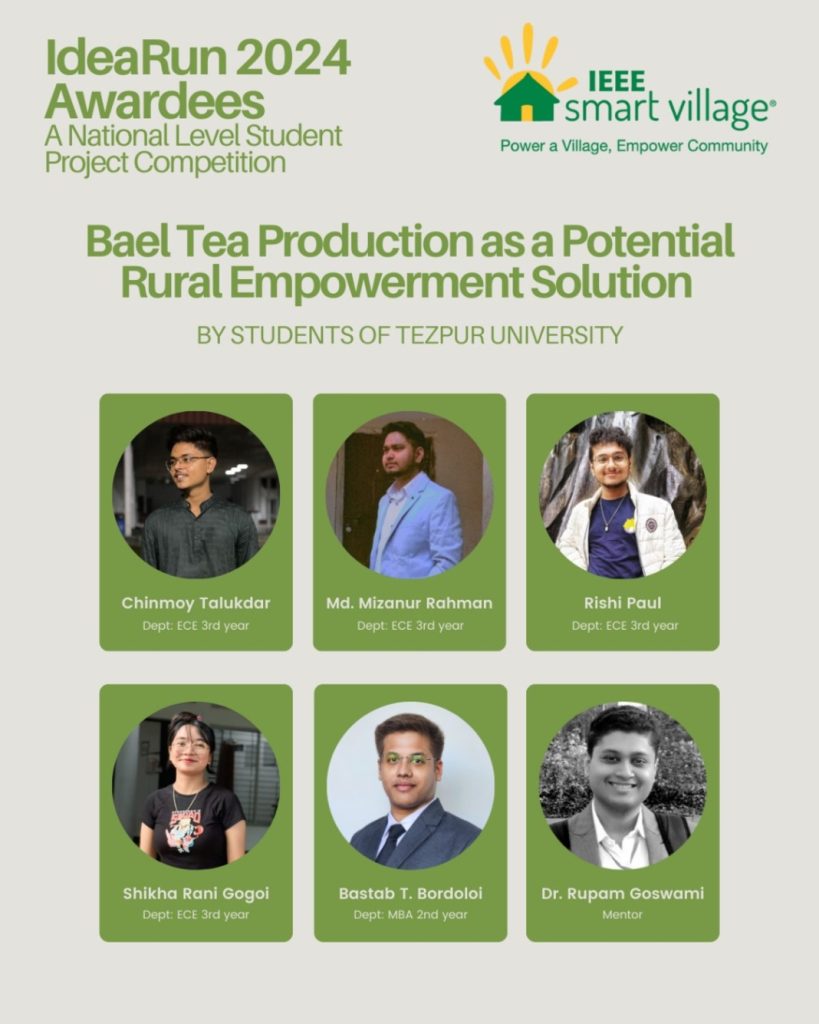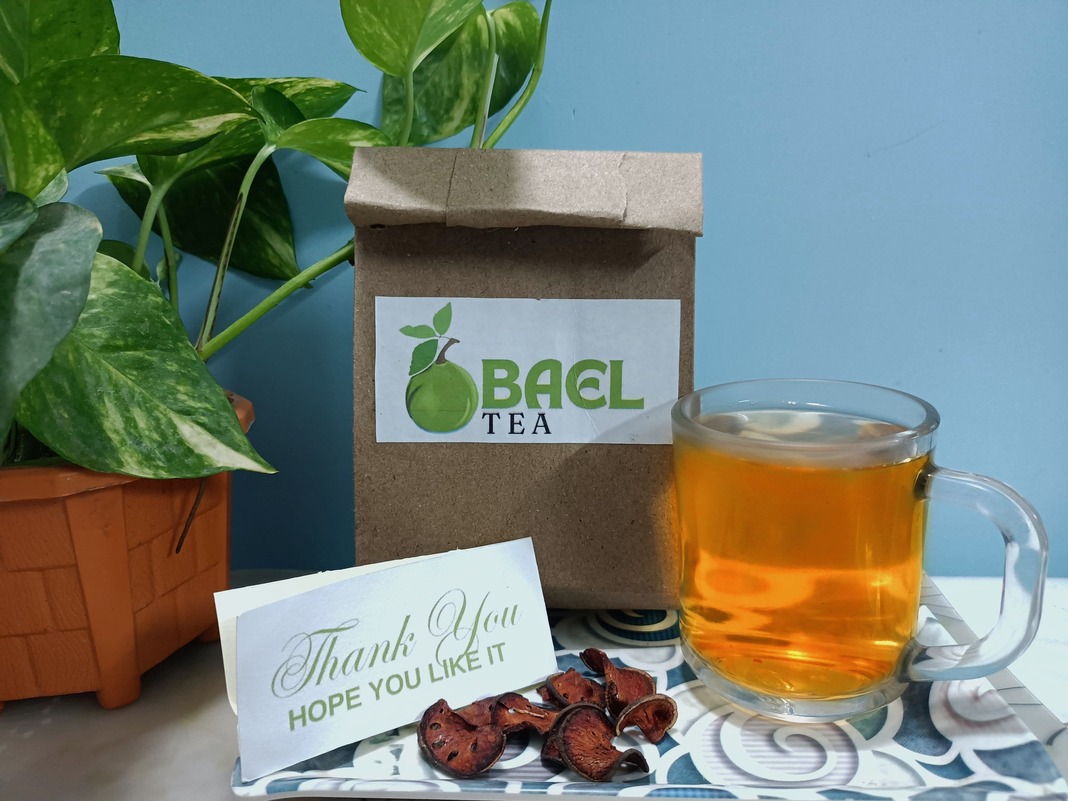Guwahati, Nov 17: A new tea innovation from Assam, is turning heads in the global wellness and beverage market. Bael tea—a modern twist on a centuries-old Ayurvedic ingredient—has earned a prestigious award at the Institute of Electrical and Electronics Engineers (IEEE) Smart Village Symposium 2024, held in Gandhinagar, India, from November 7-8.
Developed by Tezpur University (TU) students, this unique beverage blends traditional health wisdom with cutting-edge sustainability.
Bael, also known as elephant apple, is a superfruit cherished in South Asia for its medicinal properties, including antidiabetic, antimicrobial, and anticancer benefits. Despite its widespread use in traditional preparations like syrups and herbal drinks, bael’s commercial potential as a tea is largely untapped. The TU team’s innovative approach has changed that narrative, positioning bael tea as a globally appealing wellness beverage.
Out of 175 entries, the bael tea concept was among the top five winners of the IEEE Smart Village IdeaRun project contest, organized by the ISV South Asia Working Group. The team—Mizanur Rahman, Shikha Rani Gogoi, Chinmoy Talukdar, Rishi Paul, and Bastab Tapan Bordoloi—worked under the guidance of Dr. Rupam Goswami to create a beverage that is both sustainable and community-focused.
“This recognition is a testament to how traditional ingredients can be reimagined for modern consumers while uplifting rural communities,” said Dr. Goswami.

The project, supported by TU’s Centre for Multidisciplinary Research, includes plans for sustainable processing using solar-powered drying technology equipped with advanced sensors. A pilot initiative in Niz Bahjani village, Nalbari, aims to involve local communities in the production process, fostering entrepreneurship and creating economic opportunities.
“Bael tea offers an exciting fusion of heritage and innovation,” said Prof. Debendra Chandra Baruah, Director of the Centre for Multidisciplinary Research at TU. “It has the potential to open global markets while empowering Assam’s rural economy.”
Beyond sustainability, the team is focused on validating bael tea’s health benefits through nutritional analysis, aligning with India’s National Education Policy 2020, which encourages interdisciplinary research and innovation.
The project has already garnered international attention through IEEE—a global leader in advancing technology for humanity. With eligibility for an IEEE grant, the TU team is now exploring avenues to commercialize bael tea as a signature product from Assam, targeting the health-conscious global consumer.
“This achievement showcases the innovative spirit of our students and the potential of traditional resources to create global impact,” said Prof. Shambhu Nath Singh, Vice Chancellor of TU.
As wellness beverages gain traction worldwide, bael tea stands out for its distinctive flavour, rich heritage, and proven health benefits. With the support of local communities and global platforms like IEEE, this innovative brew from Assam is poised to make its mark on the global tea landscape.




